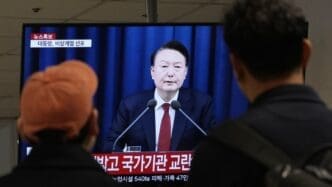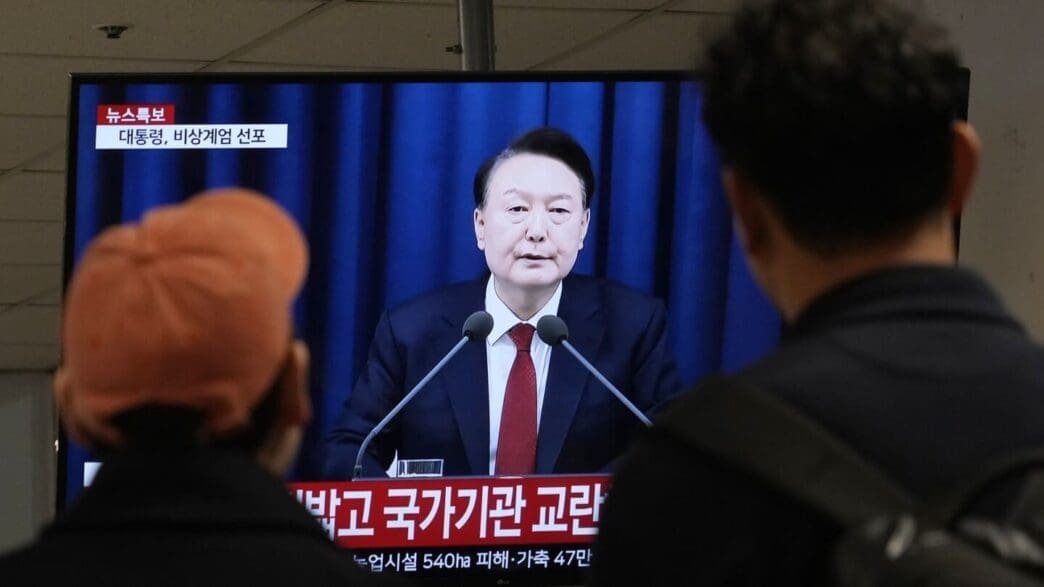In a significant political escalation, South Korean President Yoon Suk Yeol has declared an “emergency martial law,” citing dominant control of the parliament by opposition forces, which he accuses of engaging in anti-state activities.
President Yoon Suk Yeol’s announcement came during a televised speech where he expressed his intention to “eradicate pro-North Korean forces and protect the constitutional democratic order.” He emphasized the need to restore and safeguard what he termed as the “free Republic of Korea,” stating that the country is on the verge of national ruin. This bold move has generated immediate backlash not only from opposition leaders but also from within his own conservative party.
The opposition, led by Lee Jae-myung, has strongly criticized the President’s action as both illegal and unconstitutional. Lee, who narrowly lost to Yoon in the 2022 presidential elections, represents a liberal Democratic Party that has been at odds with Yoon’s administration over various governance issues, including next year’s budget bill. The ongoing friction has been partly due to the opposition’s efforts to impeach three top prosecutors involved in a contentious investigation concerning Lee—a potential candidate for the presidency in 2027.
Conservative party leader Han Dong-hoon was quick to distance himself from Yoon’s decision, labeling the declaration of martial law as erroneous and pledging to “stop it with the people.” Despite these political divides, Yoon remains steadfast, urging citizens to endure certain “inconveniences” for the greater good of restoring the nation.
The President’s approval ratings have seen a decline, attributed to his struggles with pushing legislative agendas against an opposition-ruled parliament. Additionally, Yoon has been fending off calls for independent investigations into scandals linked to his wife and top officials, further straining his relationship with rivals.
The immediate effect of this emergency measure on the nation’s governance and democracy remains uncertain. Nevertheless, it has undoubtedly intensified the political climate, with the opposition reportedly convening an emergency meeting to strategize their next moves.
The imposition of martial law by President Yoon Suk Yeol marks a pivotal moment in South Korea’s political landscape. As tensions rise, the implications of this decision on democratic governance and civil liberties will be closely watched by both domestic and international observers.
Source: Apnews








